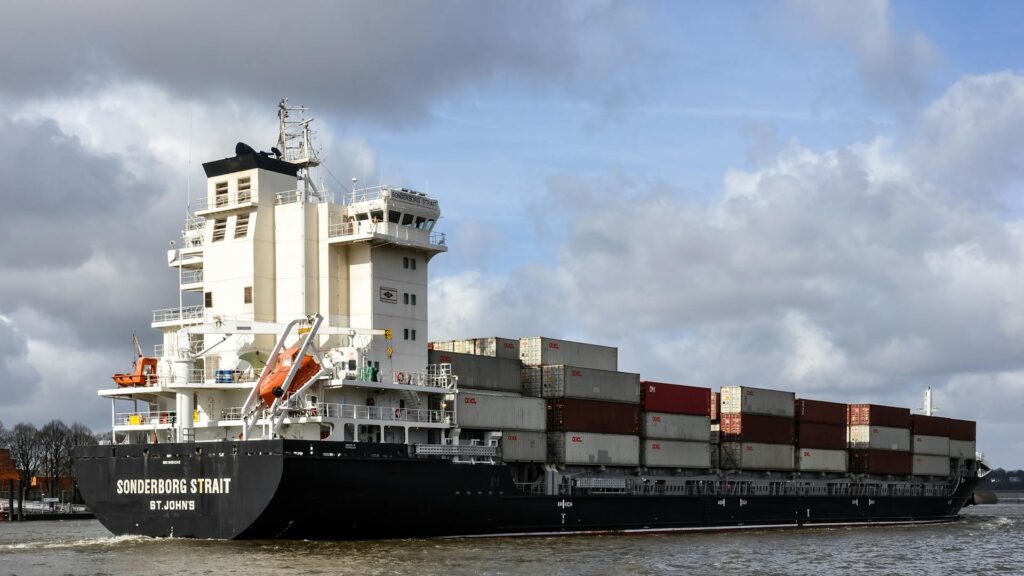
In the wave of globalization, international trade exchanges are becoming more and more frequent. A vast amount of goods cross the oceans and shuttle between various countries and regions. In this huge and complex ocean freight logistics system, a key role plays an indispensable part, and that is the Sea Freight Broker.
I. What is a Sea Freight Broker?
A Sea Freight Broker, simply put, is like a super “intermediary” in the field of international ocean freight. On one end, it connects with the shippers, that is, those consignors who have goods to be shipped overseas. It could be a factory manufacturing electronic products or a trading company dealing in clothing exports. On the other end, it interfaces with the carriers, mainly professional transportation enterprises such as shipping companies that own ships and provide maritime transportation services. Relying on their comprehensive and in-depth understanding of the ocean freight market, as well as the extensive network of contacts accumulated in the industry, they create professional and personalized ocean freight solutions for their clients.
II. The Key Roles of Sea Freight Broker
(I) Tailor-made Transportation Plans
Every batch of goods has its own uniqueness. A Sea Freight Broker will act like a professional tailor. Based on the specific characteristics of the goods, such as large and bulky mechanical equipment, fresh agricultural products that are sensitive to temperature and humidity, or flammable and explosive hazardous chemicals; combined with the clients’ transportation requirements, like an urgent order that needs to be delivered quickly or a regular restocking that can accept a longer transportation period; and considering the delivery time nodes and many other factors, they will design the best ocean freight route, select the most suitable sailing schedule, and match the type of ship that meets the needs of the goods.
For example, for a batch of fashionable clothing that urgently needs to be on the shelves during the peak sales season in Europe, they will choose a high-quality direct route to the major European ports that departs once a week, calls at fewer ports, and has a relatively fast speed to ensure that the goods can “make a splash” on time.
(II) Efficient Cargo Booking
Imagine that in the busy ocean freight market, shipping space is like a scarce “ticket”. At this time, the Sea Freight Broker demonstrates its powerful cargo booking ability. Representing the shipper, they “grab tickets” – book shipping space from numerous shipping companies. Since they have maintained close and good cooperative relationships with major shipping companies for a long time, they are familiar with the advantageous routes, shipping space allocation habits, and service features of each shipping company.
Therefore, they can quickly and accurately lock in the most suitable shipping space in the vast “ocean of shipping space” and smoothly complete the complicated booking procedures, giving the goods a head start for their smooth shipment, ensuring that the shipper’s goods can “board the ship” on time and start their ocean journey.
(III) Precise Document Handling
The documents in the ocean freight process are like the “passports” for the transportation of goods. Even a slight mistake may lead to the goods being detained at the port, unable to pass customs, or even incurring high fines. A Sea Freight Broker has a team of professional document handlers. They are like meticulous “document stewards”, carefully handling various documents such as bills of lading, packing lists, and customs declaration forms. Every information field cannot afford to have any errors.
From the accurate quantity of the goods, packaging details to the correct spelling of the loading and unloading ports, everything needs to be double-checked to ensure that the documents match the actual situation of the goods perfectly, allowing the consignee to smoothly pick up the goods at the port of destination with the correct bill of lading, ensuring the smooth passage of the entire cargo transportation process.
(IV) Skillful Freight Negotiation
In the ever-changing ocean freight market, freight rates are like the fluctuating waves. A Sea Freight Broker is like a shrewd negotiator. Relying on their real-time grasp and keen insight into the market situation, they represent the shipper and sit at the “negotiation table” with the carrier. Based on factors such as the batch size of the goods, the transportation distance, and the market supply and demand situation, they reasonably and firmly negotiate the freight rates and other related fees such as loading and unloading fees and fuel surcharges with the carrier, striving to obtain the most favorable prices and terms for the client.
Moreover, they will also provide the client with a detailed freight cost analysis and give reasonable budget suggestions, helping the client to spend every penny of the transportation cost wisely and achieve maximum benefits.
(V) Full-process Tracking and Feedback
From the moment the goods are loaded onto the ship, the Sea Freight Broker starts the “escort mode”. They use advanced information technology means to track the whereabouts of the goods in the vast ocean in real-time, just like equipping the goods with a 24-hour online “bodyguard”. At regular intervals, they will accurately feedback the latest location of the goods, how long it is expected to arrive at the port of destination, and other key information to the client, keeping the client at ease all the time.
If unfortunately encountering situations such as ship delays, the impact of bad weather on the quality of the goods, or damage to the goods during the journey, they can quickly transform into “emergency coordinators”, immediately coordinate the forces of the shipping company, the insurance company, the port, and other parties, take decisive remedial measures, and promptly inform the client of the progress of the handling, minimizing the losses and protecting the client’s rights and interests.
III. Why We Can’t Do Without Sea Freight Broker
(I) Professional Escort to Avoid Hidden Dangers
The ocean freight business is complex and intricate, just like a sea area full of hidden reefs. A Sea Freight Broker is a seasoned navigator in this sea area. Through long-term professional study and practical experience, they have accumulated profound professional knowledge and are familiar with every link, from the cargo loading rules at the port of shipment to the customs clearance procedures at the port of destination.
When facing various thorny problems, such as the transportation restrictions of special goods and the temporary adjustment of customs policies, they can skillfully resolve them with their rich experience, providing a safe “pilotage” for the client. This allows international trade enterprises to focus on their core business without worries and entrust the professional problems of cargo transportation to them with confidence.
(II) Resource Integration for One-stop Service
In this huge ecosystem of ocean freight, it involves various types of enterprises such as shipping companies, ports, warehousing companies, customs brokers, and freight forwarders, and the relationship network is like a maze. However, the Sea Freight Broker is like an explorer holding a map of the maze. With their extensive industry connections and long-established cooperative relationships, they can effectively integrate various scattered resources.
Whether the client needs to transport regular goods or faces special transportation challenges such as oversize items and hazardous goods, they can quickly mobilize resources and organize a one-stop ocean freight service chain, meeting all the client’s needs from booking shipping space, transportation, warehousing to customs clearance and goods pickup in one go. This enables the client to experience convenient and efficient logistics services without having to rush around between various links.
(III) Precise Cost Calculation for Enhanced Efficiency
For many enterprises, controlling costs means controlling the lifeline. Operating the ocean freight business on their own often leads to a high-cost dilemma due to the lack of economies of scale and unfamiliarity with market price fluctuations. A Sea Freight Broker is like a meticulous financial manager. On the one hand, by integrating the scattered goods of many clients, they form the advantage of scale transportation and obtain more favorable bulk freight rates from the carrier.
On the other hand, with their proficiency in the transportation process, they help the client optimize the transportation plan and skillfully avoid hidden cost traps such as high storage fees caused by port congestion and demurrage fees caused by ship detention. Whether it is a small start-up enterprise’s occasional ocean freight attempt or a medium-sized enterprise’s regular ocean freight demand, by relying on a Sea Freight Broker, they can achieve fine control of costs and improve economic efficiency.
(IV) Risk Early Warning and Protection
International ocean freight faces multiple risks. The fierce storms at sea, sudden changes in policies and regulations, and the sharp increase in freight rates caused by market supply and demand imbalances are like “storms” hidden in the dark, which may bring disastrous consequences to the cargo transportation at any time. A Sea Freight Broker is like having a sensitive “storm detector”. Relying on professional knowledge and the industry information collection network, they can detect various risks in advance.
Before the risk arrives, they promptly adjust the transportation strategy for the client, such as stocking up on goods in advance and changing to a more stable route. When encountering risks, they can also use their rich experience in handling disputes to coordinate the interests of all parties, resolve conflicts, help the client safeguard the safety of the goods in the face of turbulent waves, minimize losses to the greatest extent, and provide escort for the smooth development of international trade.
In the vast ocean of international trade, the Sea Freight Broker is that sturdy bridge connecting the two shores of supply and demand, helping the huge ships of global trade to move forward steadily and efficiently.





